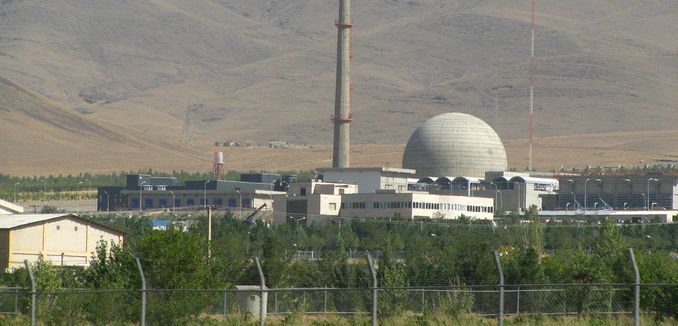The United Arab Emirates sentenced a man to ten years in prison for smuggling parts to Iran for use in its nuclear program, the Associated Press reported Thursday.
The man, an Iranian citizen identified only by his initials S.M.A.R., was convicted of smuggling an electric motor and other devices. While the UAE’s official press agency WAM said the man was convicted of “violating the international ban on nuclear weapons,” it didn’t specify how the items smuggled related to Iran’s nuclear program.
Earlier this week, a report in Politico revealed how Iran used operatives all around the world to help smuggle materials and technology in order to boost its nuclear program.
Iranian agents have frequently been caught attempting to smuggle nuclear-related items. German intelligence last year reported that in 2015 Iran engaged in secret efforts to procure nuclear-related materials that spanned at least half of Germany’s states. A year earlier, Germany’s federal intelligence agency warned that Iran was still trying to procure illicit technology for its nuclear and ballistic missile programs, despite then-ongoing nuclear negotiations with world powers.
In Iran Is *Really* Good at Evading Sanctions, which was published in the September 2013 issue of The Tower Magazine, Dr. Emanuele Ottolenghi described how Iran set up an international network of front companies to evade sanctions meant to stop its nuclear weapons program.
There is no doubt that it is harder than ever for Iran to acquire the means and technologies it needs to continue developing its military nuclear weapons program, but there is also overwhelming evidence that the regime continues to find increasingly arcane means of doing so. In particular, the regime exploits a variety of loopholes and the openness of Western societies to procure banned technology.
How this is accomplished is a fascinating, untold story. From the curious ways that funds are transferred, to the rapidity with which front companies are created, shut down, renamed, and reopened, nothing Iran does makes sense from a strictly business standpoint—but it is extraordinarily effective if the goal is to continue its nuclear program. While the complexity of these maneuvers must cause endless headaches for the Iranians, it’s far from clear that this is enough of a headache to force the Supreme Leader to end Iran’s pursuit of nuclear weapons, let alone the pressure to seriously contemplate a compromise with the West. If anything, Iran’s creative business practices show just how ineffective sanctions have so far been at pressuring Tehran to make such a choice.
[Photo: Nanking2012 / YouTube ]




